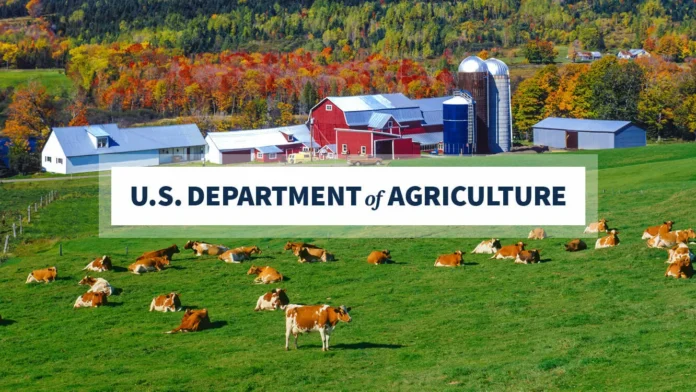The U.S. Department of Agriculture (USDA) has always been at the forefront of providing assistance to those in need, and their latest announcement is no exception. The USDA has announced that low-income residents of California who were affected by severe storms and power outages that hit the state on January 21, 2024, can now receive help through the Disaster Supplemental Nutrition Assistance Program (D-SNAP).
This program, which is a part of the USDA’s Food and Nutrition Service, aims to provide temporary food assistance to eligible individuals and families who are recovering from a disaster. The recent storms and power outages in California have caused significant damage and disruption, leaving many low-income households struggling to make ends meet. The D-SNAP program will provide much-needed relief to these families and help them get back on their feet.
Under the D-SNAP program, eligible residents will receive a one-time benefit on an electronic benefit transfer (EBT) card, which can be used to purchase food at authorized retail stores. This benefit will be based on household size and income, and it is expected to provide assistance to thousands of households in California. The USDA has allocated $50 million in funding for this program, highlighting their commitment to helping those in need during times of crisis.
The announcement of the D-SNAP program comes as a ray of hope for the low-income residents of California who have been struggling to put food on the table due to the recent disasters. It is a testament to the USDA’s dedication to ensuring that no one goes hungry in times of need. This program will not only provide immediate assistance but also alleviate some of the financial burden these families are facing, allowing them to focus on rebuilding their lives.
The USDA’s efforts to provide assistance to those affected by disasters do not stop at the D-SNAP program. The agency also provides disaster-specific assistance, such as emergency food distribution and commodity assistance, to affected areas. Additionally, the USDA works closely with local organizations and partners to ensure that food is available to those in need during emergencies.
The D-SNAP program is a vital component of the USDA’s disaster response efforts, and it has proven to be effective in providing much-needed aid to those who need it the most. In the past, the program has been implemented in states like Texas, Florida, and Puerto Rico after hurricanes and other disasters. In each case, it has provided crucial support to individuals and families trying to recover from the aftermath of a disaster.
It is heartening to see the USDA taking swift action to help low-income residents in California who have been affected by severe storms and power outages. This program will not only provide immediate assistance but also promote long-term recovery by ensuring that people have access to nutritious food. It is a testament to the USDA’s commitment to ensuring that all Americans have access to food, regardless of their circumstances.
The D-SNAP program is just one example of the USDA’s efforts to tackle food insecurity in the country. The agency also runs programs like the Supplemental Nutrition Assistance Program (SNAP), which provides food assistance to low-income individuals and families on an ongoing basis. These programs play a crucial role in alleviating hunger and promoting food security in the United States.
In conclusion, the USDA’s announcement of the D-SNAP program for low-income residents of California is a welcome development that will provide much-needed assistance to those who have been affected by severe storms and power outages. The agency’s commitment to ensuring that all Americans have access to food during times of crisis is commendable, and the D-SNAP program is a testament to that. We can all take comfort in knowing that the USDA is always ready to lend a helping hand to those in need.

